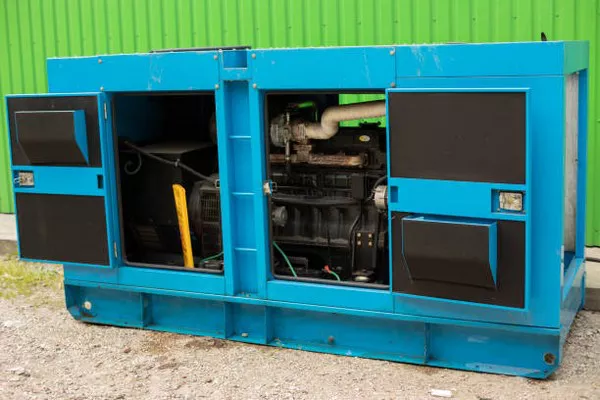Generators play a crucial role in providing backup power during emergencies or in areas where a reliable electricity supply is unavailable. Whether used in residential, commercial, or industrial settings, understanding the fuel requirements of generators is essential for efficient and uninterrupted operation. In this article, we delve into the factors influencing fuel consumption in generators and provide insights into calculating the optimal amount of gas needed to run a generator effectively.
Factors Affecting Fuel Consumption:
Several factors influence the fuel consumption of generators, making it imperative to consider each aspect when determining the required amount of gas:
Generator Capacity: The power output of a generator, typically measured in kilowatts (kW) or kilovolt-amperes (kVA), directly impacts fuel consumption. Larger generators with higher capacity engines tend to consume more fuel than smaller ones to meet the energy demands.
Load Demand: The load demand refers to the amount of electrical power required by connected appliances, machinery, or systems. Generators operating under heavier loads consume more fuel than those running at lighter loads. It’s crucial to assess the load demand accurately to estimate fuel requirements correctly.
Fuel Type: Generators can be powered by various fuels such as gasoline, diesel, natural gas, propane, or biodiesel. Each fuel type has its energy density and combustion characteristics, influencing the generator’s fuel consumption rate. Additionally, the availability and cost of fuel can impact the overall operational expenses.
Efficiency: The efficiency of a generator refers to how effectively it converts fuel into electrical power. Modern generators are designed to optimize fuel efficiency, but factors like engine condition, maintenance, and ambient temperature can affect overall efficiency. Regular maintenance and proper tuning are essential to ensure optimal fuel efficiency.
Run Time: The duration for which a generator operates continuously, known as run time, significantly affects fuel consumption. Longer run times require more fuel, especially if the generator operates at higher loads. Calculating the expected run time helps in estimating the total fuel needed for a specific period.
Calculating Fuel Consumption:
To determine the amount of gas required to run a generator, one can follow these steps:
Generator Fuel Consumption Rate:
Start by identifying the fuel consumption rate of the generator, typically provided by the manufacturer in terms of gallons per hour (GPH) or liters per hour (LPH). This rate indicates how much fuel the generator consumes per hour of operation at a specific load. Refer to the generator’s manual or specifications for this information.
Estimate Load Demand:
Assess the total electrical load that the generator will be powering. Calculate the wattage or kilowattage of each connected appliance, equipment, or system. Sum up the individual loads to determine the total load demand in kilowatts (kW) or kilovolt-amperes (kVA).
Determine Run Time:
Decide the duration for which the generator needs to operate continuously. Whether it’s a short-term backup during a power outage or an extended period of off-grid operation, knowing the expected run time is crucial for estimating fuel requirements accurately.
Apply Efficiency Factor:
Consider the efficiency of the generator when calculating fuel consumption. While modern generators are designed to be efficient, factors like engine condition, maintenance, and ambient temperature can affect actual efficiency. Apply an efficiency factor (typically expressed as a percentage) to adjust the fuel consumption estimate accordingly.
Calculate Total Fuel Required:
Multiply the generator’s fuel consumption rate (GPH or LPH) by the estimated run time (in hours) and the total load demand (in kW or kVA). Then, divide the result by the efficiency factor to obtain the total amount of fuel required in gallons or liters.
Example Calculation:
Let’s consider a scenario where a 50 kW diesel generator with a fuel consumption rate of 3 gallons per hour (GPH) operates continuously for 24 hours at 75% load with an assumed efficiency factor of 90%.
- Generator Fuel Consumption Rate (GPH): 3 GPH
- Total Load Demand (kW): 50 kW × 0.75 (75% load) = 37.5 kW
- Estimated Run Time (hours): 24 hours
- Efficiency Factor: 90% (0.90)
Total Fuel Required = (Fuel Consumption Rate × Run Time × Total Load Demand) / Efficiency Factor
Total Fuel Required = (3 GPH × 24 hours × 37.5 kW) / 0.90
Total Fuel Required ≈ 900 gallons
See Also A Comprehensive Guide on Oil Change Intervals for Generators
Conclusion:
Understanding the fuel requirements of generators is essential for ensuring uninterrupted power supply during emergencies or off-grid operations. By considering factors such as generator capacity, load demand, fuel type, efficiency, and run time, one can accurately estimate the amount of gas needed to run a generator effectively. Proper calculation and planning not only optimize fuel usage but also contribute to overall operational efficiency and cost-effectiveness.

